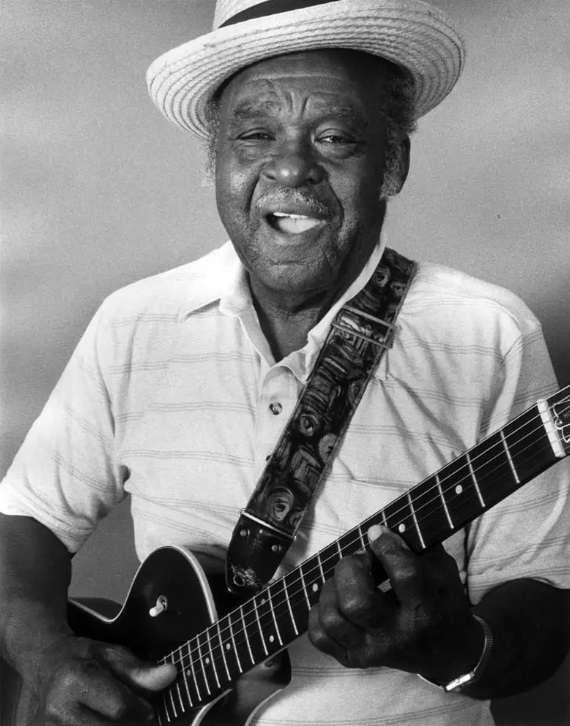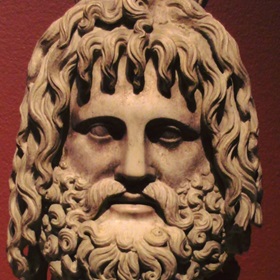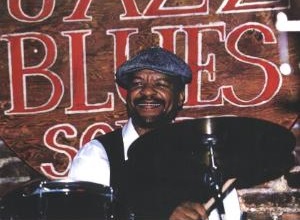Henry Townsend
There were few Bluesmen like Henry Townsend,
with his musical heritage firmly rooted here in St. Louis!
"A St. Louis blues icon, Henry forged an unparalleled career spanning nine decades, and shaping the blues genre with his distinctive sound"- HEC TV
Henry Townsend is the only Bluesman to have recorded Blues in 8 decades. Henry was also a patriarch of the Blues, recognized for his achievements worldwide!
He made his recording debut in 1929, and during the 1930s he recorded in the company of leading blues artists including Roosevelt Sykes, John Lee “Sonny Boy” Williamson, Robert Nighthawk, and Mississippi-born Big Joe Williams and Walter Davis.

Henry's story
Have some Henry Townsend content you’d like to add here….words and/or photos? Just hit us up on our contact page!
The STLBlues interview – an afternoon hanging out with Henry Townsend
By Dave Beardsley
Henry was kind enough to invite STLBlues into his North St. Louis home for a rare interview, and to share some insight into his long life in the blues. Thanks goes out to John May of the St. Louis Blues Society for helping arrange this interview.
HENRY TOWNSEND
Q: California isn’t a Blues Mecca, why is that?
A: Well, I think it’s missing the heritage. Mississippi, Memphis, St. Louis and Chicago have the heritage. Down south is where the Blues came from. Who’s that guy came out of California”, Henry asked, and then sang the lyric “I love my baby’.
John May: “Lowell Fulsom came out of California, but there’s no real blues roots in California. They have large bands, west coast swing, but no pre-war blues I know of”.
Henry: Charles Brown was in California when he had those hits, I don’t know if he was from there. I’m thinking of Percy Mayfield. Not much about California I can say. We (Henry, Homesick James, Honeyboy Edwards and Robert Jr. Lockwood) started having jam sessions there. We were flown out to California 4-5 years ago, and played some shows, several at Yoshi’s in San Francisco. I’ve been everywhere! I made an effort to live in most cities (laughs).
Q: You and some other musicians were flown in to Memphis to meet with and perform with Steven Seagal. What was that experience like?
A: It was good, something he wanted to do. I enjoyed it!! I think we both got pleasure out of it. We’re both good at what we do…he sure made a name for himself, though (laughs). He was nice to work with.
Q: Were you familiar with Seagal from his movies?
A: Yeah, I knew about him. He carried himself like he does in his movies, very confident. Pleasant to work with, though. We just got together and jammed!
Q: A question Seagal once asked, in one of his movies, was regarding what makes the soul of a man. What do you think shapes the soul of a man or woman?
A: That’s been asked a million times, in a million ways. The good book says when man was created, he was complete in the image of man. That’s when he became a living soul. That question – they’re still digging at it! Nothing on earth has the power to conquer the things we have here on earth. People are struggling to just be. I think Bush thought we were supreme, and he could boss the world. Now look at the mess we’re in today! If two people at the top don’t get along, give them both swords! Don’t send our children over because they don’t get along. Who are we to police things? Besides, if they ain’t go no oil, we have nothing against them! (laughs) People wouldn’t go duck-hunting so often if the ducks had guns!
Q: You’ve had a long, distinguished career, and through your life you’ve experienced so many moments in music. What stands out as a favorite event in your musical career?
A: (Pauses to reflect) A couple things – I’m pleased at how things turned out, I’ve had lots of experiences through the years. I did something I liked, and I knew I wouldn’t be bored. I can pick out amazing things in Chicago – Sugar Blue reached me pretty good. My idol was Lonnie Johnson – there was nobody else to be my idol, not in the guitar field. I played the Wolf Trap in Washington, D.C. when it was in bloom, that was one of my biggest thrills. My son Alonzo was with me, we visited the Smithsonian while we were there. It was his (Alonzo’s) last teenage year.
Q: You sound very proud of him!
A: I am!!
Q: What does the saying “It ain’t a black thing, it ain’t a white thing, it’s a blues thing” mean to you?
A: It means what it says. Society builds a wall between people, it’s the nature of people. It’s designed to crush the uderprivelidged. No matter what color you are, there ain’t no help coming from nowhere. Years ago, they didn’t even recognize a guitar, they called it a ‘starvation box’. I’ll put this out there to cover what I think it means…..People think you’re down when you sing the blues. Not with me, it’s nothing but the truth goin’ on. We’re telling stories about our lives. It’s like that ZZ Hill song ‘Down Home Blues’. Blues can be a happy thing…it’s a good feeling!
Q: What do you think about the state of the blues?
A: Blues is eternal! It’s the truth and you don’t squash the truth. It’s like gospel….it may come out in a million different ways, but it’s still gospel. And it’s still the blues!
Henry's photos and discography
Words of Tribute


Henry's videos
1929
1931
1934
1935
1937
1962
1976
1978
1980
From Runaway to Blues Legend: The Remarkable Henry Townsend Story
Henry's links
HENRY’S DISCOGRAPHY
LAST FM – HENRY TOWNSEND
NATIONAL ENDOWMENT FOR THE ARTS
THE BLUES IN ST. LOUIS VOL.3 – HENRY TOWNSEND
CELEBRATING HENRY’s 100TH AT BB’s JAZZ, BLUES AND SOUPS
HEC-TV HISTORY SPOTLIGHT – ST. LOUIS BLUES ICON HENRY TOWNSEND
HENRY’S GRAMMY AWARD – LAST OF THE GREAT MS DELTA BLUESMEN: LIVE IN DALLAS
ALONZO TOWNSEND CARRIES ON THE MUSICAL LEGACY